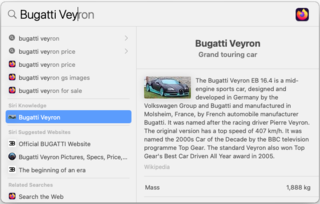Related Research Articles

Google Search is a search engine provided and operated by Google. Handling more than 3.5 billion searches per day, it has a 92% share of the global search engine market. It is the most-visited website in the world. Additionally, it is the most searched and used search engine in the entire world.
Spamdexing is the deliberate manipulation of search engine indexes. It involves a number of methods, such as link building and repeating unrelated phrases, to manipulate the relevance or prominence of resources indexed in a manner inconsistent with the purpose of the indexing system.
In a computer language, a reserved word is a word that cannot be used as an identifier, such as the name of a variable, function, or label – it is "reserved from use". This is a syntactic definition, and a reserved word may have no user-defined meaning.
Search engine optimization (SEO) is the process of improving the quality and quantity of website traffic to a website or a web page from search engines. SEO targets unpaid traffic rather than direct traffic or paid traffic. Unpaid traffic may originate from different kinds of searches, including image search, video search, academic search, news search, and industry-specific vertical search engines.

This page is a glossary of library and information science.

Spotlight is a system-wide desktop search feature of Apple's macOS and iOS operating systems. Spotlight is a selection-based search system, which creates an index of all items and files on the system. It is designed to allow the user to quickly locate a wide variety of items on the computer, including documents, pictures, music, applications, and System Settings. In addition, specific words in documents and in web pages in a web browser's history or bookmarks can be searched. It also allows the user to narrow down searches with creation dates, modification dates, sizes, types and other attributes. Spotlight also offers quick access to definitions from the built-in New Oxford American Dictionary and to calculator functionality. There are also command-line tools to perform functions such as Spotlight searches.

Google Ads is an online advertising platform developed by Google, where advertisers bid to display brief advertisements, service offerings, product listings, or videos to web users. It can place ads both in the results of search engines like Google Search and on non-search websites, mobile apps, and videos. Services are offered under a pay-per-click (PPC) pricing model.
Pay-per-click (PPC) is an internet advertising model used to drive traffic to websites, in which an advertiser pays a publisher when the ad is clicked.
In text retrieval, full-text search refers to techniques for searching a single computer-stored document or a collection in a full-text database. Full-text search is distinguished from searches based on metadata or on parts of the original texts represented in databases.
In text processing, a proximity search looks for documents where two or more separately matching term occurrences are within a specified distance, where distance is the number of intermediate words or characters. In addition to proximity, some implementations may also impose a constraint on the word order, in that the order in the searched text must be identical to the order of the search query. Proximity searching goes beyond the simple matching of words by adding the constraint of proximity and is generally regarded as a form of advanced search.
Search engine marketing (SEM) is a form of Internet marketing that involves the promotion of websites by increasing their visibility in search engine results pages (SERPs) primarily through paid advertising. SEM may incorporate search engine optimization (SEO), which adjusts or rewrites website content and site architecture to achieve a higher ranking in search engine results pages to enhance pay per click (PPC) listings and increase the Call to action (CTA) on the website.

A search engine is a software system that finds web pages that match a web search. They search the World Wide Web in a systematic way for particular information specified in a textual web search query. The search results are generally presented in a line of results, often referred to as search engine results pages (SERPs). The information may be a mix of links to web pages, images, videos, infographics, articles, research papers, and other types of files. Some search engines also mine data available in databases or open directories. Unlike web directories and social bookmarking sites, which are maintained by human editors, search engines also maintain real-time information by running an algorithm on a web crawler. Any internet-based content that cannot be indexed and searched by a web search engine falls under the category of deep web.
Search Engine Results Pages (SERP) are the pages displayed by search engines in response to a query by a user. The main component of the SERP is the listing of results that are returned by the search engine in response to a keyword query.
In information retrieval, an index term is a term that captures the essence of the topic of a document. Index terms make up a controlled vocabulary for use in bibliographic records. They are an integral part of bibliographic control, which is the function by which libraries collect, organize and disseminate documents. They are used as keywords to retrieve documents in an information system, for instance, a catalog or a search engine. A popular form of keywords on the web are tags, which are directly visible and can be assigned by non-experts. Index terms can consist of a word, phrase, or alphanumerical term. They are created by analyzing the document either manually with subject indexing or automatically with automatic indexing or more sophisticated methods of keyword extraction. Index terms can either come from a controlled vocabulary or be freely assigned.
A Website content writer or web content writer is a person who specializes in providing relevant content for websites; it is a sub-specialty of copywriting. Every website has a specific target audience and requires the most relevant content to attract business. Content should contain keywords aimed towards improving a website's SEO. A website content writer who also has knowledge of the SEO process is referred to as an SEO Content Writer.
Keyword research is a practice search engine optimization (SEO) professionals used to find and research search terms that users enter into search engines when looking for products, services, or general information. Keywords are related to queries that are asked by users in search engines. There are four types of queries :
A web query or web search query is a query that a user enters into a web search engine to satisfy their information needs. Web search queries are distinctive in that they are often plain text and boolean search directives are rarely used. They vary greatly from standard query languages, which are governed by strict syntax rules as command languages with keyword or positional parameters.
Compound-term processing, in information-retrieval, is search result matching on the basis of compound terms. Compound terms are built by combining two or more simple terms; for example, "triple" is a single word term, but "triple heart bypass" is a compound term.
Natural-language user interface is a type of computer human interface where linguistic phenomena such as verbs, phrases and clauses act as UI controls for creating, selecting and modifying data in software applications.
Search analytics is the use of search data to investigate particular interactions among Web searchers, the search engine, or the content during searching episodes. The resulting analysis and aggregation of search engine statistics can be used in search engine marketing (SEM) and search engine optimization (SEO). In other words, search analytics helps website owners understand and improve their performance on search engines based on the outcome, for example identifying highly valuable site visitors, or understanding user intent. Search analytics includes search volume trends and analysis, reverse searching, keyword monitoring, search result and advertisement history, advertisement spending statistics, website comparisons, affiliate marketing statistics, multivariate ad testing, et al.
References
- ↑ Beal, Vangie (12 April 2007). "What is phrase search? Webopedia Definition". www.webopedia.com. Retrieved 2020-09-17.
- ↑ "What are Search Operators?". Online Marketing Glossary. 2015-01-27. Retrieved 2020-09-17.
- ↑ Bezet, Amanda. "LibGuides: Research Process: Proximity Searching". ncu.libguides.com. Retrieved 2020-09-17.
- ↑ "What are Search Operators?". Online Marketing Glossary. 2015-01-27. Retrieved 2020-09-17.
- ↑ "What are Search Operators?". Online Marketing Glossary. 2015-01-27. Retrieved 2020-09-17.